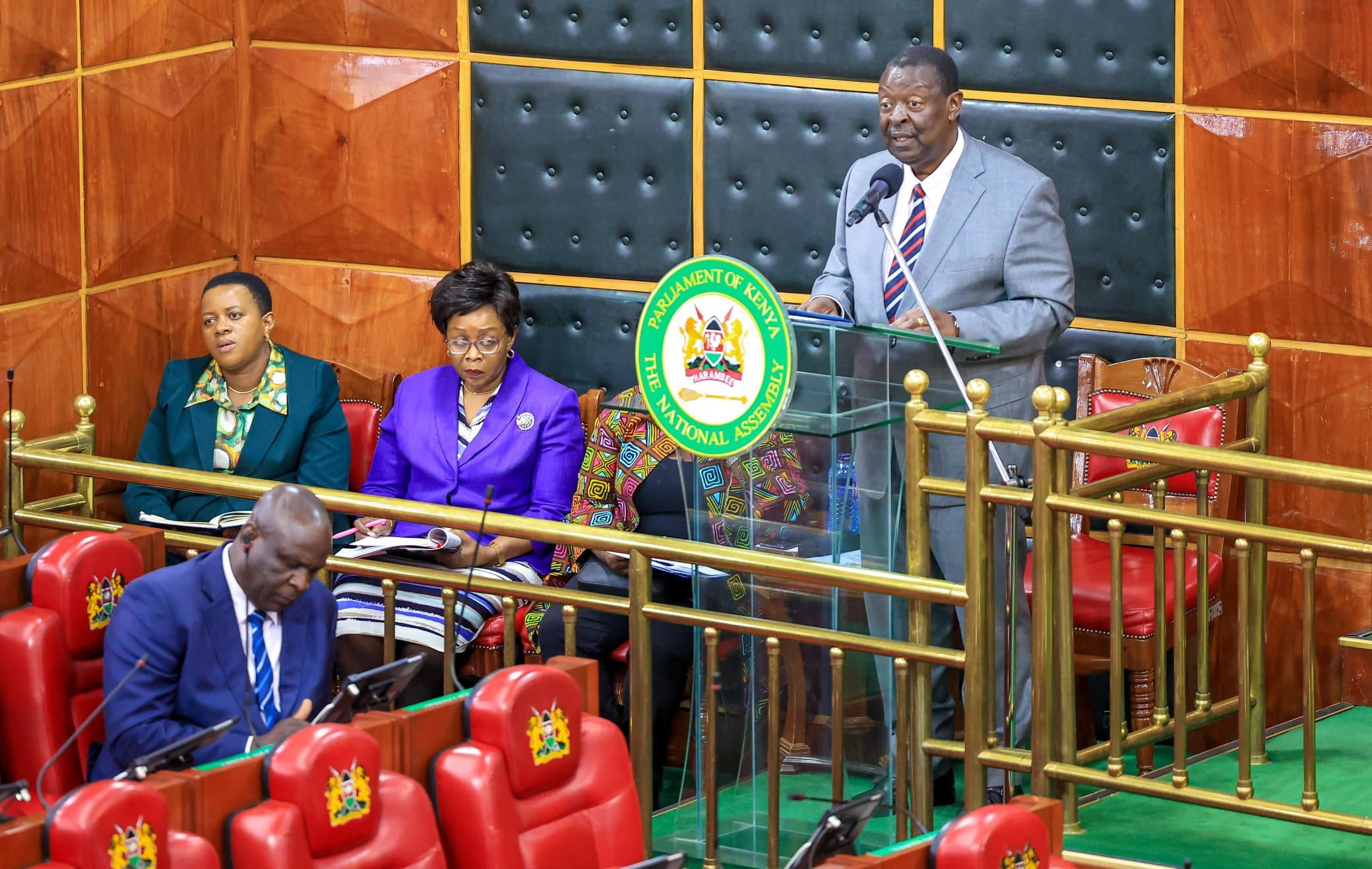We're loading the full news article for you. This includes the article content, images, author information, and related articles.
Nairobi has strongly denied involvement in human trafficking after a chartered flight carrying 153 Palestinians transited through Kenya, sparking an international investigation and raising questions about a coordinated displacement of people from the war-torn territory.

NAIROBI, Kenya – The Kenyan government has forcefully refuted allegations of complicity in human trafficking following a diplomatic firestorm over a mysterious chartered flight that transported 153 Palestinians from Gaza to South Africa via Nairobi on Thursday, November 13, 2025. The incident has triggered a high-level investigation in South Africa and drawn sharp condemnation from Palestinian authorities, who allege the operation was orchestrated by a deceptive organization to exploit vulnerable families.
Addressing the National Assembly on Wednesday, November 19, Kenya's Prime Cabinet Secretary and Minister of Foreign Affairs, Musalia Mudavadi, asserted that Kenya was not a hub for human trafficking. "The civil aviation of Kenya had proper record, proper sight of that aircraft and I want to reassure that Kenya does not get involved in any human trafficking," Mudavadi stated, directing further inquiries to the Ministry of Transport for a detailed response on aviation protocols.
The controversy began when the flight landed at O.R. Tambo International Airport in Johannesburg. South African President Cyril Ramaphosa described the arrival as "mysterious," noting the passengers lacked proper travel documents, including the customary departure stamps from Israeli authorities. The group, which included families with children, was held on the tarmac for approximately 12 hours before being granted entry. Ramaphosa confirmed his government's intelligence services and the Department of Home Affairs are investigating the origins of the flight.
South African authorities eventually allowed 130 of the passengers to enter the country on 90-day visa exemptions on humanitarian grounds, citing "empathy and compassion." The remaining 23 passengers reportedly took onward flights to other destinations, including Australia and Canada. The decision to admit the group came after the intervention of a local humanitarian organization, Gift of the Givers, which offered to provide accommodation and support.
The Palestinian Embassy in South Africa issued a statement declaring the flight was arranged by "an unregistered and misleading organisation." The embassy accused the entity of exploiting the dire humanitarian situation in Gaza, deceiving families, and collecting money—reportedly between $1,400 and $2,000 per person—for the journey. One passenger told Al Jazeera they were unaware of their final destination until the flight departed from Nairobi.
An anonymous Israeli military official identified the organizing group as Al-Majd, stating that Israel had escorted buses arranged by the group from Gaza to Israel's Ramon Airport for the departure. The Israeli Coordinator of Government Activities in the Territories (COGAT) confirmed the residents left after COGAT "received approval from a third country to receive them," without specifying which country. This has fueled speculation among some South African officials and activists that the flights could be part of a wider, covert plan for the ethnic cleansing of Palestinians from Gaza.
While Mudavadi's statement aimed to distance Kenya from the trafficking allegations, questions remain about the transit process. The flight originated from Ramon Airport in Israel, landed in Nairobi, and then proceeded to Johannesburg. According to reports, the passengers were in transit in Nairobi and their passports were not stamped by Kenyan immigration officials, which is standard for connecting flights. However, the lack of prior coordination, as highlighted by the Palestinian Embassy, and the undocumented nature of the passengers' departure from Israeli-controlled territory have placed Kenya's role as a transit hub under international scrutiny. The incident underscores the complex and often opaque networks involved in migration from conflict zones and the critical role of transit countries in upholding international protocols. Further investigation by South African authorities is expected to shed more light on the full chain of events and the organizations involved.
Keep the conversation in one place—threads here stay linked to the story and in the forums.
Sign in to start a discussion
Start a conversation about this story and keep it linked here.
Other hot threads
E-sports and Gaming Community in Kenya
Active 9 months ago
The Role of Technology in Modern Agriculture (AgriTech)
Active 9 months ago
Popular Recreational Activities Across Counties
Active 9 months ago
Investing in Youth Sports Development Programs
Active 9 months ago
Key figures and persons of interest featured in this article